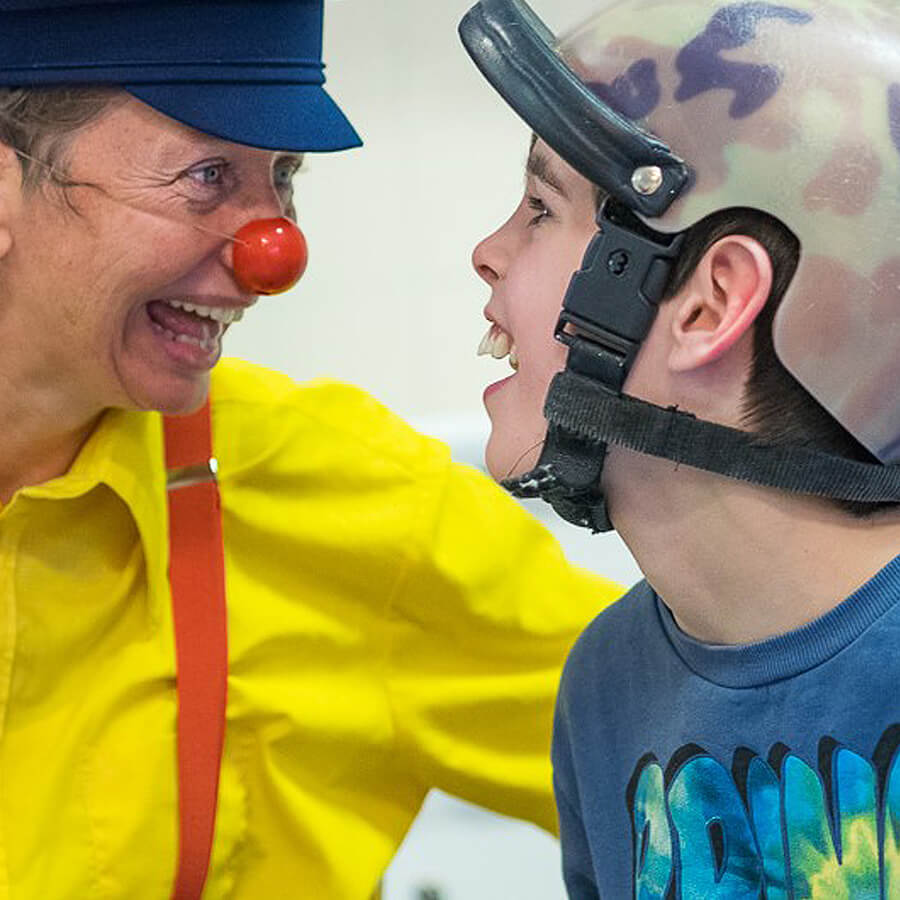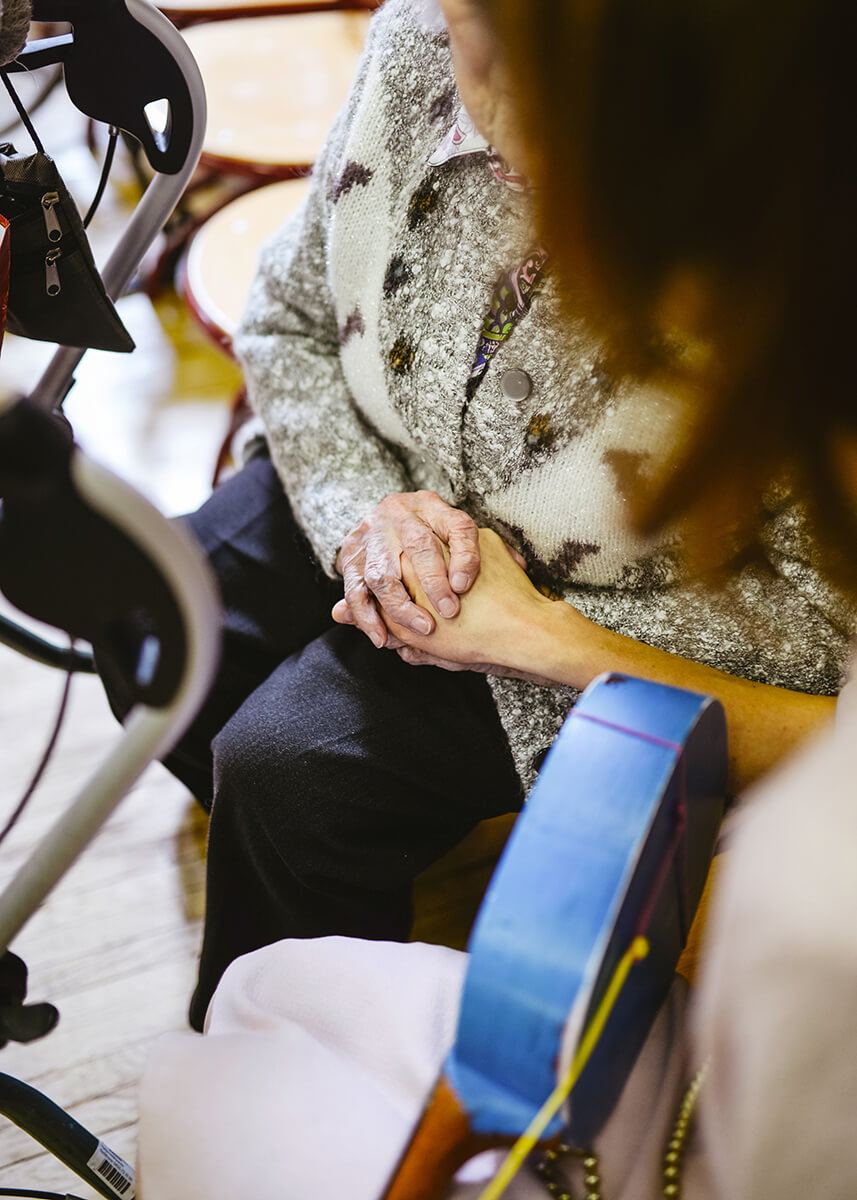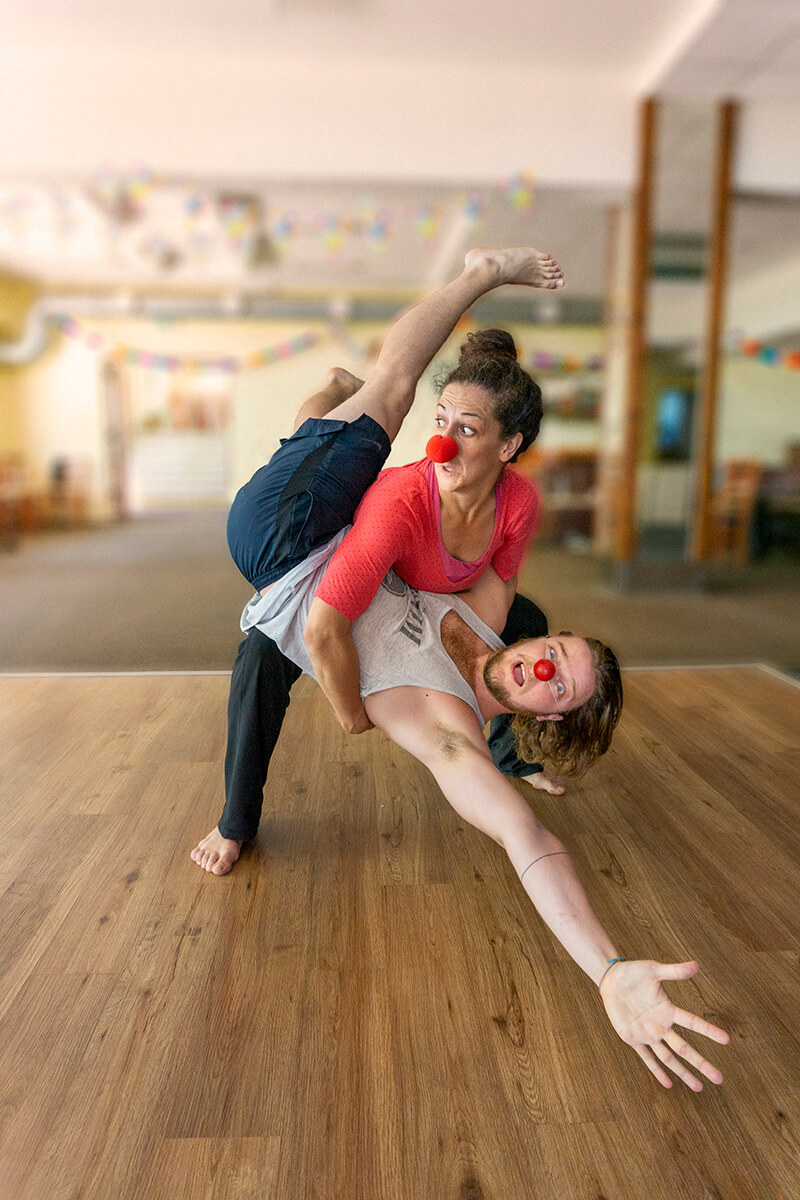Art of
clowning


©Stichting Cliniclowns
The figure of the clown
Healthcare clowns contribute to the empowerment and mental wellbeing of vulnerable groups. They are trained artistically to support, encourage and connect with the audiences by recognising their needs and potential and engaging with them on an individual level.
People can easily relate to and connect with the figure of the clown, a light-hearted and emotional character who constantly faces challenges of all kinds. The clown’s ability to turn failures into personal victories is the real power behind it all.
During a visit, healthcare clowns develop a close connection with the people they meet. Common stories and experiences are born out of every encounter. Very often people share their worries, thoughts and personal stories from the past. This demands great empathy and know-how from the clown artists, which is why all artists working in this project are trained comprehensively in artistic, medical and psychological questions
The methodology
In several transnational artistic laboratories clowning artists from different organisations, will meet and exchange good practices. They will co-create new artistic approaches and formats together with people with dementia and children with ASD and their environments based on state-of-the-art education and with the collaboration of international experts.
The clowns are already very experienced in working with the two audiences punctually. Together they will create new innovative, creative and sensitive approaches towards working with these target groups.
The artistic laboratories are set up as two parallel processes: one for developing new formats with elderly with dementia, one for developing new formats with children with ASD.
The artistic formats will gradually evolve to test and implement the new approaches and formats developed during the artistic laboratories. From the beginning of the project the artists will meet and engage with the target groups, not only in the frame of the international artistic laboratories, but also in their local contexts. This will enable the artists to have a better understanding of the local contexts, needs and wishes of the audiences.

©Radvile Juozapaityte
PHASE I
Artistic laboratories:
Cross border exchange of good practices
18th-22th October 2021 | HU
25th-29th October 2021 | FI
Sharing of experiences.
Discuss main creative approaches.
Target audience needs assessment.
Workshop with social experts
Develop first models for the artistic formats.
HOMEWORK ARTISTS
Testing, Sharing, Reporting

PHASE II
Artistic laboratories:
Cooperation with audiences & artists from other fields
4th-8th April 2022 | LT
16th-20th May 2022 | ES
Visit and work with target audiences in the institutions.
Cooperate with care-takers & family members to understand social and cultural needs.
Experts from other artistic fields working with target groups are invited for content development.
FINAL HOMEWORK ARTISTS
Testing, sharing, reporting, connecting with social facilities

PHASE III
Artistic laboratories:
Consolidation & adjustment of developed artistic approaches
15th-20th Jan. 2023 | AT
30th Jan – 3rd Feb | HR
Discuss and capture success and challenges.
Finalize artistic formats.
Test together in social facilities (premier).
Collect feedback from audience.
FINAL HOMEWORK ARTISTS
Reporting and sharing

Training and exchange

©RED NOSES International
To ensure the artistic quality of the ClowNexus project, knowledge exchange and special training are an essential part.
- In the International School of Humour, there will be 33 trainings on the topics such as: clowning solo and in duos, physical comedy, improvisation or innovative techniques such as Instant Ageing Workshops (to be better able to identify with the needs of elderly people); and little theatre pieces for children with disabilities.
- HCIM – Healthcare Clowning International MeetingThis conference will take place from 20 – 22 April 2022, in The Hague, The Netherlands. There will all kind of discussions, sessions and workshops on the work of healthcare clown artists in the health and social sector. There will also be a great number of practical and theoretical workshops focussing on engaging children with ASD and elderly with dementia.Programme and tickets: https://www.hcim2021.com/



